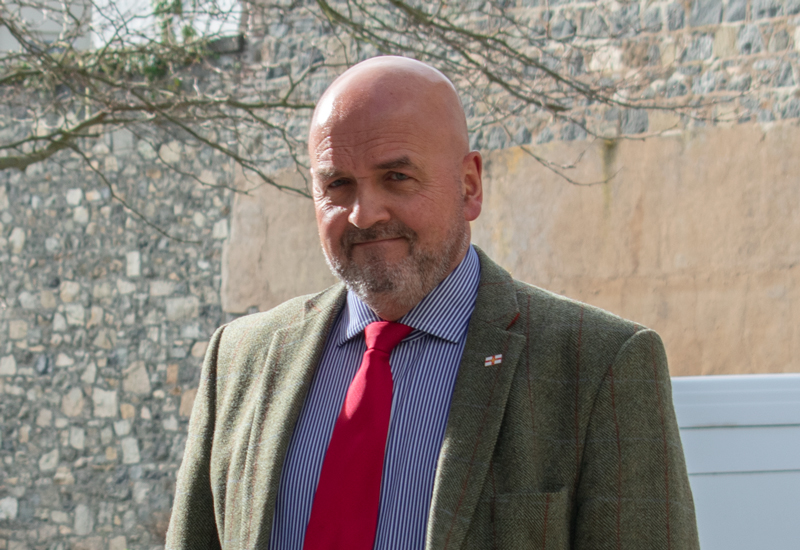
The States have voted to transfer probate services from the Ecclesiastical Court to the Royal Court, although the move has been criticised by Deputies who work in the legal profession.
The States of Deliberation approved Policy & Resources' proposal to move personal probate away from the jurisdiction of the Ecclesiastical Court, which has close links with the Church of England.
"While the service and operation are considered to be high quality and efficient, it is no longer considered appropriate that probate is administered under these arrangements," said P&R. "The proposals to transfer the jurisdiction and function will ensure the same governance and standards as for similar public legal services, operating as a government led service.
"Any surplus income from probate, following operational costs and the maintenance of a reserve, has in recent years been transferred to the Deanery Fund LBG and then utilised for charitable purposes and community initiatives."

Pictured: For many years, surplus income from probate was distributed by the Dean personally. However the current Dean, the Very Rev. Tim Barker, made changes in 2018 that have increased transparency and shared those details.
Policy & Resource Committee Member Jonathan Le Tocq said these reforms were well overdue and that an argument could be made that they could have been made a century ago.
An annual grant of £400,000 will be paid to the Social Investment Fund for the first two years that the Royal Court operates grants of representation for personal property.
This is to ensure that the amount donated to charitable, social and community projects is maintained in case the profits from probate decrease under the administration of the Royal Court.
After two years, recommendations for the level of this grant will be included in future States of Guernsey Budgets.

Pictured: Deputy Jonathan Le Tocq said that during his time as Chief Minister, some financial institutions and potential investors from Islamic countries had been put off by the Church of England's close affiliation with the States via the Ecclesiastical Court.
Advocate and politician Peter Ferbrache said the administration of Guernsey's Ecclesiastical Court was "first-class" and that the proposed change was "completely unnecessary".
"It is not going to achieve any purpose except put the charge up," he warned. "We have something that works efficiently and we want to change it."
Another Advocate, Deputy Chris Green, opposed the proposals on similar grounds.
"I can appreciate this transfer might to some extent improve governance and accountability, however there’s a sense from some in the community that this works pretty well as it is, and if it ain’t broke, why fix it. It might be somewhat anachronistic but it works flexibly and efficiently."

Pictured: Advocate and Deputy Peter Ferbrache said the Ecclesiastical Court was a well-oiled machine and that there was no need to replace it.
Deputy Green said the added costs associated with this transferral of jurisdiction came at a time when States finances are already under pressure because of the impact of the corona virus crisis.
"What exactly is driving this change, because it doesn’t seem to be a practical enhancement of the service we have at the moment?" he asked.
Fellow Castel Deputy Richard Graham said the Ecclesiastical Court was one of the island's many "anachronisms", along with our jury system and our status as a Crown Dependency, that in fact serve Guernsey well.
"The charge of anachronism, whilst easy to make, just doesn't stand up."
However, the majority of States members voted in favour of transferring probate to the Royal Court by 21 votes to 17.
Pictured top: The States voted to transfer the jurisdiction of probate from the Ecclesiastical Court to The Royal Court.
Comments
Comments on this story express the views of the commentator only, not Bailiwick Publishing. We are unable to guarantee the accuracy of any of those comments.